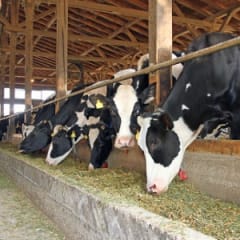1. Food Science Technologist

Food Science Technologist
A food science technologist provides accurate nutritional information for food labelling, does shelf-life studies, tests the safety and quality of food, develops recipes using newly-discovered ingredients, modifies foods such as creating fat-free varieties and uses panels or consumers to evaluate products.
2. Biomedical Engineer

Biomedical Engineer
The field of engineering as a whole is an innovative field - coming up with ideas leading to everything from skyscrapers and automobiles, to aerospace and sonar.
3. Biologist

Biologist
Biology is the scientific study of life and living organisms, and can focus on so many things - how an organism has come to exist, how it is built, how it grows, how it functions, what it does, or where it lives.
4. Animal Scientist

Animal Scientist
Whether it be in a university setting doing research, in a laboratory performing tests, or at a farm operation designing new methods for optimum yield and herd management, animal scientists are busy ensuring agricultural productivity and food safety.
5. Aerospace Engineer

Aerospace Engineer
If you are interested in designing and building machines that fly, this career may be the right choice for you!
6. Industrial Engineer

Industrial Engineer
Industrial engineers find ways to eliminate wastefulness in production processes.
7. Naval Architect

Naval Architect
A naval architect is someone who designs, builds, and maintains several different types of marine vessels and structures, and makes water travel possible.
8. Computer Programmer

Computer Programmer
The road to becoming a computer programmer typically begins with a keen interest in technology, and an almost insatiable curiosity about the language of computers.
9. Computer and Information Research Scientist

Computer and Information Research Scientist
Are you a computer geek?
10. Nuclear Engineer

Nuclear Engineer
A nuclear engineer researches and develops the processes, instruments, and systems used to get benefits from nuclear energy and radiation.
11. Geospatial Information Scientist

Geospatial Information Scientist
A geospatial information scientist is someone who studies and analyzes how people utilize the physical space around them.
12. Environmental Engineer

Environmental Engineer
An environmental engineer is someone who uses the principles of engineering, soil science, biology, and chemistry to develop solutions to environmental problems.
13. Photonics Engineer

Photonics Engineer
Photonics is the science of using light to generate energy, detect information, or transmit information.
14. Soil and Plant Scientist

Soil and Plant Scientist
A soil and plant scientist is someone who works in the agricultural field studying the different compositions of soil and the effects they have on plant life, crops, and the national food supply.

